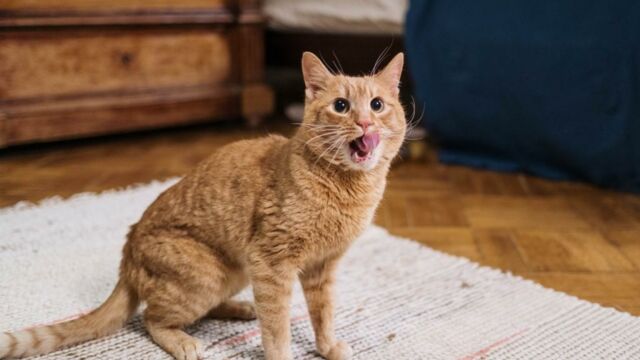Your cat’s frantic running back and forth across the house, also known as zoomies, can be pretty frustrating when they do it in the middle of the night. Here's what you need to know about this erratic behaviour and how to prevent and stop it.
Discover our latest podcast
What are cat zoomies?
You'll know your cat has the zoomies when they 'zoom' and frantically run around the house. And then, almost as quickly as they started, the zoomies end and your kitty is back to snoozing on the couch.
From a cat parent's perspective, the zoomies may look as if the cat has suddenly gone crazy for no obvious reason. But there's a technical term for this behaviour: Frenetic Random Activity Periods, or FRAPs. When your cat gets an intense burst of energy, running around the house is a simple way for them to get it out.
Cats are naturally crepuscular, meaning they are active at dawn and dusk, which is when their natural prey, rodents, sneak around. While they are not really nocturnal, their internal rhythm still tells them that time to get active and start hunting.
Your kitty is loaded with energy

Cats rest and sleep most of the day to save energy for short, active ‘bursts’. Back in time, it was great for hunting prey but as modern house pets get their food served in silver bowls, they find other ways to imitate the ‘bursts’, often at night. So, it results in zoomies as a much-needed energy release.
Cats of all ages can experience zoomies from pent-up energy, but the behaviour may be more common in younger cats and kittens who have more energy to spend.
Your cat may be in acute pain
While this is far less common, acute pain can be a reason behind your cat’s zoomies.
If your cat has fleas or itchy skin, racing around may be their way of trying to escape the discomfort. Your ageing cat may also be losing their eyesight or hearing and get spooked by things easier, causing a frantic run around the house.
Watch symptoms such as irritability, scratching, or excess licking to identify if they are in pain.
If a cat engages in licking a particular area repeatedly in addition to zooming around, it may be an indication of pain or anxiety.
Vets warn of post-poop zoomies

If your cat gets the zoomies after pooping, be sure to pay attention to signs of constipation, such as discomfort, vomiting, defecation outside the litter box, or a change in stool. Even if your cat doesn't clearly exhibit these signs, it's never a bad idea to check in with your cat's vet, especially if the post-poop zoomies are a new behaviour.
Cats may also get the zoomies after pooping to run away from an unpleasant smell, so make sure their litter box is clean. These tips will help you to keep it stink-free.
Here is how to make cat zoomies stop
If your cat is notorious for waking you up with a late-night zoom around the house, it's time to find a solution.
Make sure your kitty gets enough exercise and engages in at least two 15-minute interactive play sessions per day.
It's also important to provide mental exercise and satisfaction so don't just exhaust the cat, but instead, play in a way that allows your pet to stalk and plan.
A cat tree and interactive toys will also keep your fluffy entertained, and you - asleep.
Sources used:
Daily Paws: Cat Zoomies: Everything You Need To Know About Your Kitty's Frantic Runs Around the House
Cuteness: Why Your Cat Runs Around Like A Maniac At Night















